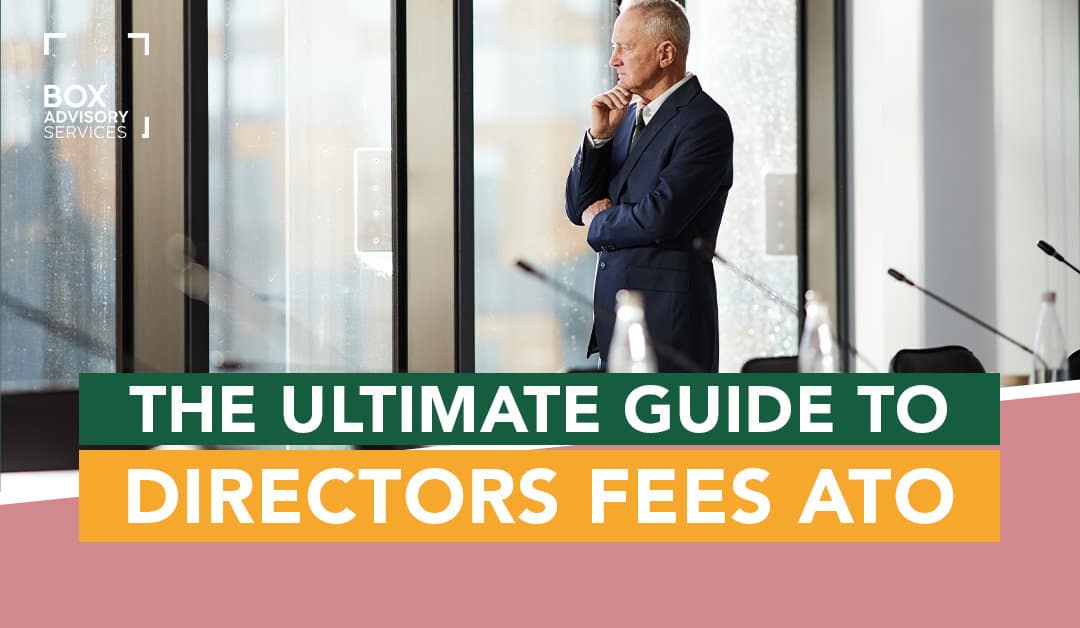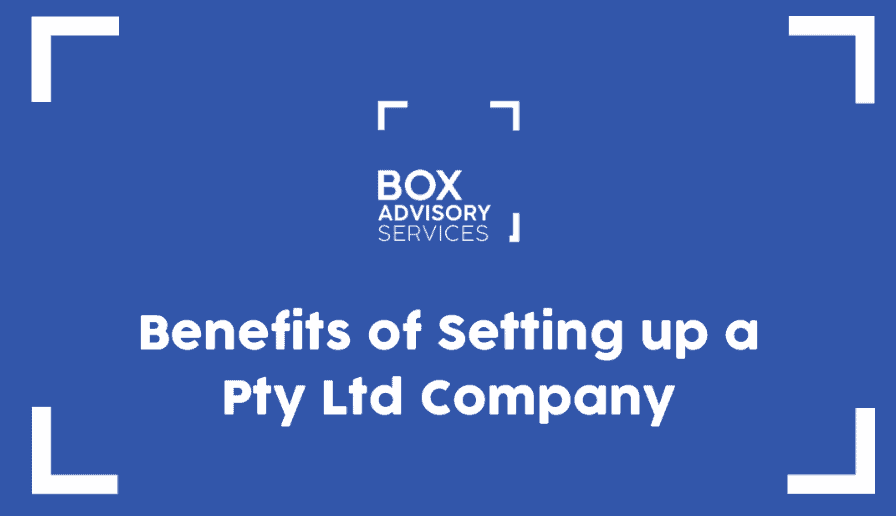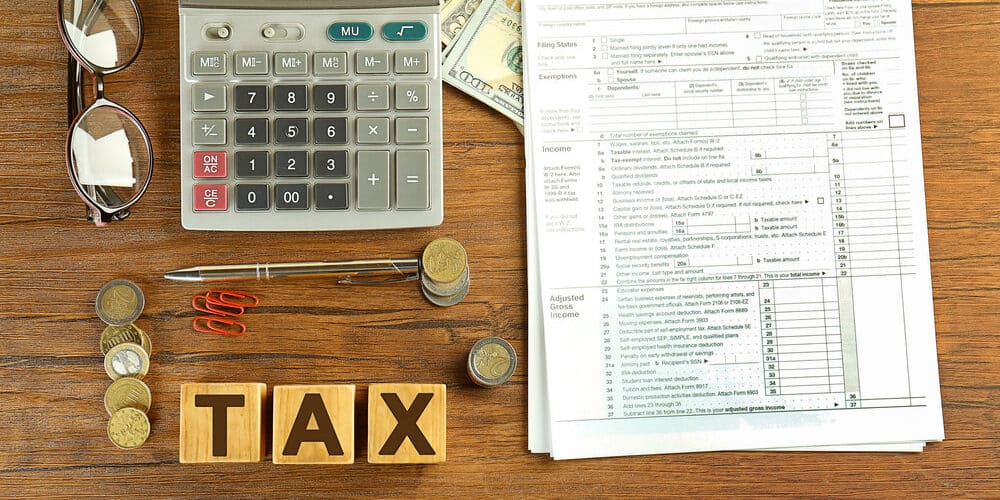
BY
|
The Ultimate Guide to ATO Directors’ Fees (Updated 2025)
Paying directors’ fees can be confusing, especially when you’re trying to make sure your business stays compliant with the ATO. Many business owners ask the same questions: Do directors have to be paid? If they are, what’s the correct way to process those payments?
Getting this right matters, because directors’ fees can be claimed as a tax deduction and reduce your overall tax bill.
The challenge is that directors’ fees aren’t as straightforward as just making a payment. There are specific procedures to follow, and the ATO has clear tax obligations around how fees are reported and claimed. If those steps aren’t followed, you risk missing out on deductions or creating compliance issues.
In this article, we’ll walk through the rules around directors’ fees, how they should be paid, and what you need to do to claim them properly for your business.
What Are Director Fees?
Before delving into the rules and procedures, you must understand how directors can be paid. Most commonly, directors are paid either through:
- A salary;
- Directors fees; or
- Dividends
While each payment method compensates the directors for their services, they have different tax implications and compliance procedures.
What Is the Difference Between the Three Methods of Payment?
When it comes to rewarding directors, companies generally have three options: salary, directors’ fees, or dividends. Each method has its own rules, tax treatment, and compliance requirements.
1. Salary
If a director is actively working in the business, they’re usually paid a salary just like any other employee. This applies to executive directors who take on day-to-day management duties in addition to their role on the board.
2. Directors’ Fees
For non-executive directors (those who don’t perform employee duties but provide governance and oversight) the usual form of payment is directors’ fees. These fees can only be paid if the company’s constitution allows it, or if shareholders have formally approved them. The constitution is important because it sets out whether directors are entitled to fees and ensures the company remains compliant with corporate and tax rules.
Even though directors aren’t technically employees, superannuation guarantee contributions must still be made on their fees or salary.
3. Dividends
Another way directors may be rewarded is through dividends. Dividends are not payments for services but rather a distribution of company profits to shareholders. If the director is also a shareholder, they may receive dividends in line with their shareholding, as outlined in the shareholder agreement.
How Directors’ Fees & ATO Tax Deductions Work
Directors’ fees are generally treated as a business expense, which means they can be claimed as a deduction against the company’s taxable income.
However, the ATO does make provisions if the company intends to pay directors’ fees in that financial year. So, you can claim a deduction when payments are accrued before they’re paid out.
Given that every cent counts in the current distressed market, this could be a cashflow advantage. Your company board must pass a formal Board resolution to pay directors fees. If the resolution is passed in the current financial year, you can claim the tax deduction even if the directors’ fees aren’t paid by the end of that financial year.
Timing of Directors’ Fees and Tax Deductions
Directors’ fees are generally treated as assessable income in the financial year they are received.
However, there’s an important exception.
If the company passes a resolution before the end of the financial year to approve directors’ fees for that year, the business can still claim the deduction in that same year, even if the payment itself is made after year-end.
This treatment is supported under the Income Tax Assessment Act 1997, which sets out the tax obligations and entitlements for individuals acting as company directors.
What Happens If You’re Non-Compliant?
On 1 July 2019, ATO introduced new rules that affect whether or not you can claim tax deductions for payments made to directors, employees and contractors. Directors’ fee payments are only compliant if you have withheld PAYG amounts or reported them as required.
The consequence of non-compliance: you can’t claim a tax deduction!
So, to claim a tax deduction for your paid directors’ fees, you must ensure you’re compliant with all the ATO tax requirements, including:
- Withholding PAYG
- Capturing FBT
- Preparing the payroll for the director fees
- Superannuation
- Filing to the ATO as per the single-touch payroll rules
PAYG Withholding
When you pay employees, individual contractors and other businesses, you must withhold an amount from the payment and send it to the ATO. This is called PAYG withholding.
PAYG withholding aims to prevent employees from paying a significant amount of tax at the end of the financial year. Much like how you would withhold PAYG tax on regular employee salary payments, you have to withhold PAYG tax from the gross directors’ fees paid.
Regarding your company’s reporting requirements, you must also report your directors’ fees PAYG withholding on your business activity statement (BAS). Your company is similarly required to issue a payment summary to each director. Think of it like a payslip. It must indicate how much you paid your directors’ fees for that financial year and how much you withheld from these payments.
PAYG withholding and reporting is a vital compliance obligation if you want to claim these payments as tax deductions.
Fringe Benefits Tax (FBT)
A fringe benefit is a remuneration paid to the employee (or their associate) in addition to their salary or, in this case, directors’ fees. If fringe benefits were provided to directors during the financial year, they must be captured in the annual FBT tax return
Fringe benefits include, but are not limited to:
- Providing a director with an interest-free loan
- Allowing a director to use a work vehicle for their private purposes
- Reimbursing a director for their children’s school fees
- Paying a director’s health insurance
- Paying for entertainment packages such as hosting a Christmas party for the directors, employees and their partners
For more on FBT, check out our ultimate guide on fringe benefits tax!
Should Your Directors’ Fees Be Captured for Payroll Tax Purposes?
Although directors’ fees differ from salaries, they’re still subject to payroll tax obligations. So, yes, to be ATO compliant, your directors’ fees must be recorded for payroll tax purposes. It’s worth noting that your directors should also be covered for WorkCover insurance purposes.
Superannuation Guarantee Contributions
Directors’ fees fall within the definition of ordinary times earnings, so a superannuation guarantee is applicable. All directors’ fees are subject to superannuation guarantees, and payments must be made to complying super funds or retirement savings accounts.
Are Directors Fees Subject to GST?
Directors’ fees are generally not subject to GST, as they are not considered a taxable supply. However, if the director is being paid through a company or trust, that entity may need to charge GST on the fees if it is registered or required to be registered for GST.
Directors Fees vs Management Fees – What’s the Difference?
It’s important to distinguish between directors’ fees and management fees. Directors’ fees compensate directors for their services as members of the board. On the other hand, management fees are paid to a company or trustfor providing managerial services to the business. Management fees have different tax implications than directors’ fees.
How to Report Directors’ Fees on Your Tax Return
Directors’ fees must be reported in the company tax return in the year they are paid or accrued. The fees are shown as an expense which reduces the company’s taxable income. The individual directors must also include the fees in their tax returns as assessable income.
When the ATO audits a company, they’ll consider all areas of tax compliance for company directors, including:
- PAYG withholding
- Fringe benefits tax
- Payroll tax
- Superannuation guarantee contributions
If your company constitution or shareholder agreement provides approval for directors to receive directors’ fees, you’ll need to comply with the following directors’ fees ATO requirements.
Directors’ Fees for Non-Resident Directors
The rules differ if a director lives outside Australia. Non-resident directors are usually subject to withholding tax on their directors’ fees. The company must withhold this tax and report it to the ATO, and the director includes the income in their own tax return. The rate of withholding depends on whether Australia has a tax treaty with the director’s country of residence.
Key Takeaways
Have you recently considered your directors’ fees ATO obligations? Various compliance points need to be considered concerning paying directors’ fees if you want to claim tax deductions on your business’s expenses and ultimately minimise your tax liability.
Consider the following questions:
- Are you withholding PAYG withholding from the directors’ fees?
- Are you issuing an employment payment summary?
- Is your company capturing benefits provided to Directors in the annual fringe benefits tax return?
- Are you making the relevant superannuation guarantee contributions on behalf of your directors?
If you’re unsure whether your company complies with the directors’ fees ATO requirements, consider speaking to tax professionals. At Box Advisory Services, our small team of experienced accountants can help you navigate through paying your directors’ fees and being ATO compliant.
Book a free consultation to assess your situation and learn how we can help you.



